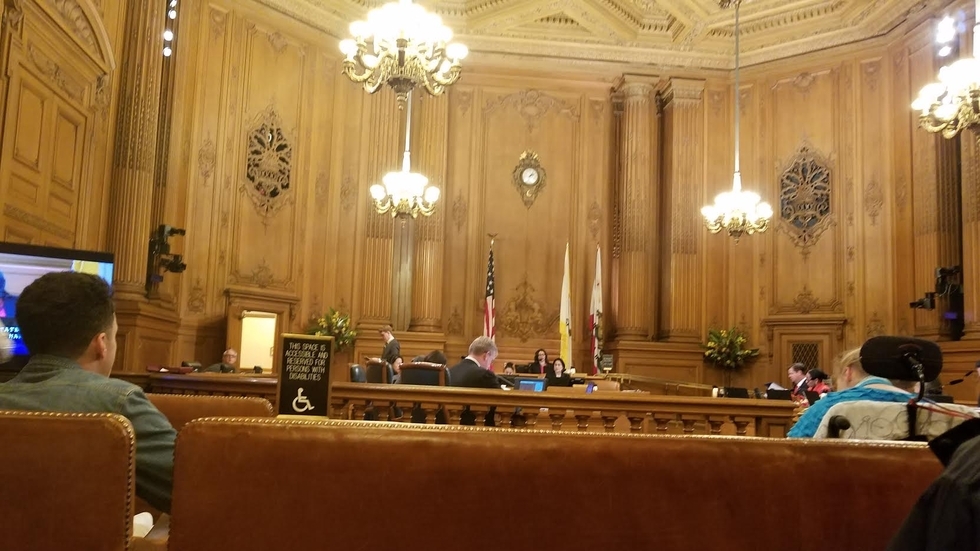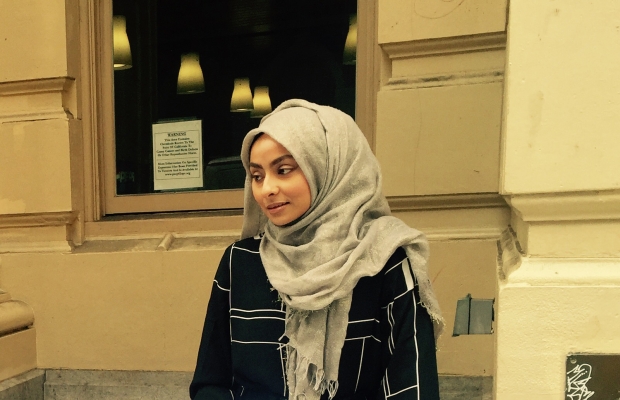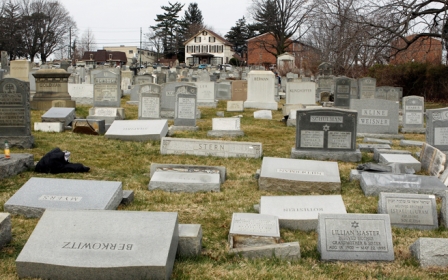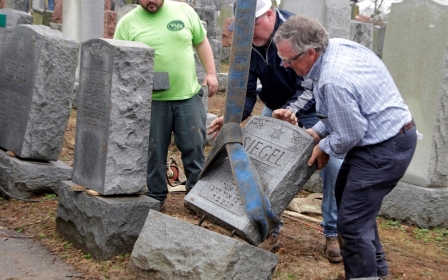San Francisco lawmakers unite against Trump's plans for a Muslim registry

SAN FRANCISCO, United States - City leaders have passed an historic local law that will pre-empt President Trump's plans for a Muslim registry, stopping officials from cooperating with federal authorities implementing the controversial plan.
A "landmark" local ordinance passed on Tuesday at San Francisco's Board of Supervisors' meeting aims to protect the city’s Muslim residents, especially those who are undocumented.
With overwhelming approval, the ordinance would hold San Francisco accountable if city officials or agencies provide information to federal authorities regarding religion or ethnicity of residents.
The provision throws down the gauntlet to Donald Trump's plans for creating a Muslim registry, after a member of his transition team proposed compiling a list of all the immigrants coming from Muslim-majority countries.
'At least the city of San Francisco is doing something to protect its most vulnerable residents'
- Ahsha Safai, San Francisco city official
Although the proposed registry has not officially been announced by the new administration, San Francisco officials have been swift in their response, trying to anticipate any possible outcome.
During the hearing, supervisor Malia Cohen, who co-sponsored the ordinance together with Mayor Ed Lee, talked about how the idea of creating this legislation had long been part of her plan for the city.
“This is a landmark ordinance that took a long time to complete, and I took action after hearing the pleas from members of our community who will be directly impacted by the registry,” Cohen said.
“We want to send a strong message to would-be offenders and to those who would be targeted - San Francisco is united and against such registry.”
According to Cohen, the idea of a registry based on ethnicity, race or religion would not only be “lazy and shortsighted”, but extremely dangerous and could mark a slippery slope for the country's democracy.
The resolution provides that any individual or non-profit can sue the city of San Francisco if their private information appears in any federal registry, for up to $5,000, but it does not state what would be the minimum for a possible incarceration or deportation.
Though it still needs to be read a second time and Mayor Ed Lee still needs to sign it, San Francisco's Council on American-Islamic Relations (CAIR) chapter was confident it would go through smoothly.
“This was the hardest part, passing it today,” CAIR's executive director Sameena Usman told Middle East Eye in San Francisco. “And of course Mayor Lee will vote in favour, since he co-authored it, so we don't foresee any vetoing.”
Serious threat
Though still hypothetical, CAIR did not take lightly Trump's threats of a Muslim registry, especially after his travel ban for seven Muslim-majority countries.
“Sadly, we've seen that so far he has been sticking to his campaign promises, so the city of San Francisco has moved to prevent any harm to its residents, a move that we applaud at CAIR,” Usman said.
'At least my city, the city I love, has our back and has not let us down” - Jehan Hakim, SF resident
City officials agreed with Usman that Trump's words have to be taken as a serious threat. Before the vote at city hall, supervisor Ahsha Safai, whose father immigrated from Iran, made a heartfelt plea in favour of the ordinance.
“I'm a Muslim myself and I feel directly threatened by Trump's proposed registry. I wonder if my name, Safai, will appear in any registry and if I or others, would be treated differently based only on our names or religion,” Safai said, while receiving applause from the attendees.
“Maybe I will be deported, who knows, but at least the city of San Francisco is doing something to protect its vulnerable residents,” he said.
Leading the fightback
In fact, San Francisco and the state of California are at the country's forefront in the fight against Trump's administration, condemning its controversial policies.
“We've been asked by other cities around the country for a copy of the legislation, so they can present it at city halls and pass ordinances like this one,” Usman said.
The Arab Resource and Organizing Center (AROC) also worked with San Francisco's supervisors to draft the resolution. On Monday, AROC activists, too, applauded what they believed to be a groundbreaking ordinance.
“We've set the tone for the rest of the country,” Lara Kiswani, AROC's executive director, said. “This policy ensures that the city will not comply with any potential registry or attempt by the government to collect information based on people's ethnicity or country of origin… Collectively, we are fighting back.”
Jehan Hakim was born and raised in San Francisco and she experienced a bittersweet feeling after learning that the ordinance had passed.
“I'm very relieved, but at the same time I feel really sad that we have to vote on something like this. At least my city, the city I love, has our back and has not let us down,” she said.
“Look at what happened to Japanese citizens. It all started with a registry too,” she stated, referring to the internment of Japanese Americans during World War II. “I'm a citizen of this country but I don't really feel as safe as [I did] before Trump came to power. Thank God, San Francisco and the state of California are leading the way for the country to fight back.”
Middle East Eye propose une couverture et une analyse indépendantes et incomparables du Moyen-Orient, de l’Afrique du Nord et d’autres régions du monde. Pour en savoir plus sur la reprise de ce contenu et les frais qui s’appliquent, veuillez remplir ce formulaire [en anglais]. Pour en savoir plus sur MEE, cliquez ici [en anglais].





